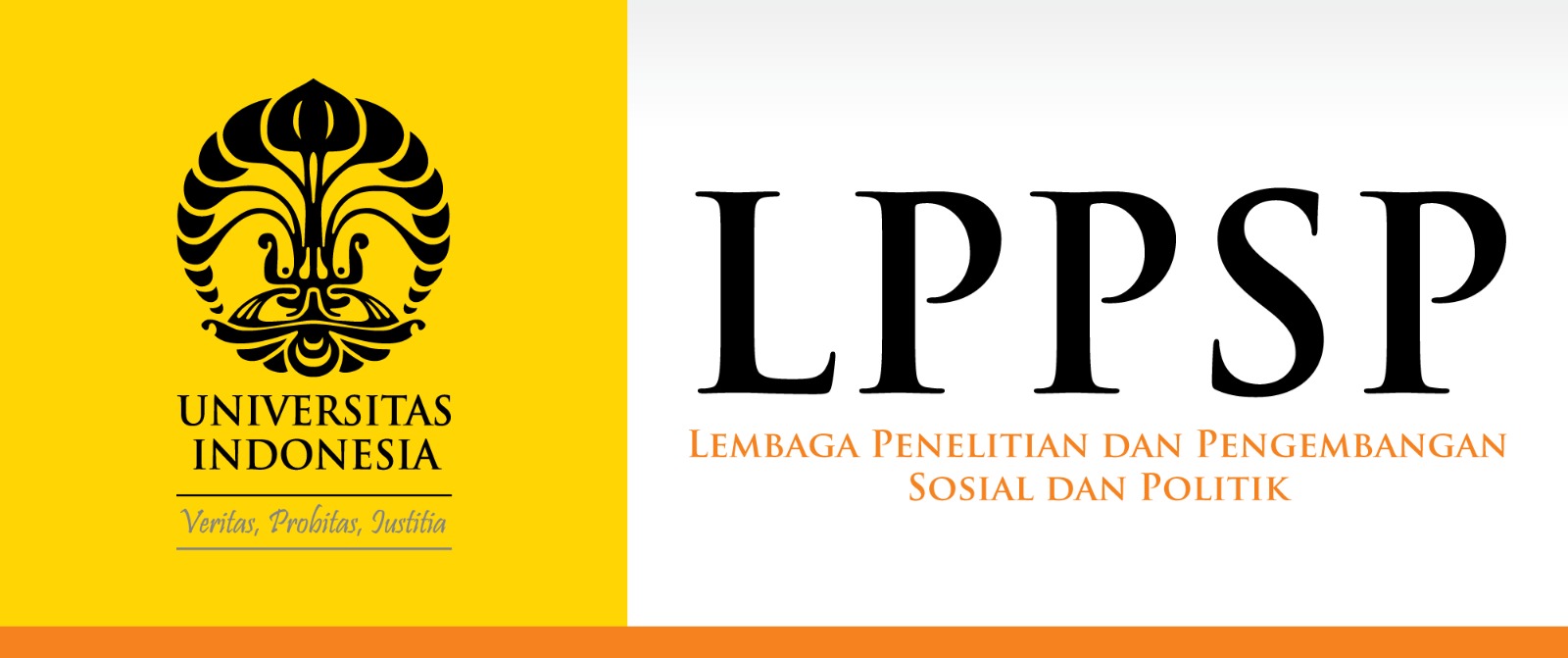JURNAL KOMUNIKASI INDONESIA
Abstract
This study discusses the process of purchase decision making which made through online transaction in customer to customer (C2C) e-commerce platform. Online review and online rating have been known as a part of electronic word of mouth which has an impact on buyer's purchase decisions. This study use Kotler and Keller's (2009) purchase making decision process to finds out the purchase decision making process which happens through C2C e-commerce. This study also aims to finds out how online reviews and online rating are used in purchase decision making process. This study uses post-positivistik paradigm with qualitative approach and case study strategy. Data were obtained from in-depth interview and literature studies. The results of this study show that the informations in online review and online rating can provide an overview of seller's reputation and form buyer's perception of products and services quality. The results also indicate that in the purchase making decisions process, there is a zero moment of truth phase. In this phase, buyers learn about the product or seller's reputation through the information that they got from online sources. One of the informations used in zero moment of truth is from online review and online rating.
References
APJII. (2017). Hasil Survei Penetrasi dan Perilaku Pengguna Internet Indonesia. https://apjii.or.id/survei2017
Auliya, Z. F., Umam, M. R. K., & Prastiwi, S. K. (2017). Online Costumer Reviews (OTRs) dan Rating: Kekuatan Baru pada Pemasaran Online di Indonesia. EBBANK, 8(1), 89-98.
Ayday, E., & Fekri, F. (2012). Iterative Trust and Reputation Management Using Belief Propagation. IEEE Transactions on Dependable and Secure Computing, 9(3), 375-386.
Chen, Y. H., & Barnes, S. (2007). Initial Trust and Online Buyer Behaviour. Industrial management & data systems, 107(1), 21-36.
Cho, M., Furey, L. D., & Mohr, T. (2017). Communicating Corporate Social Responsibility on Social Media: Strategic, Stakeholders, and Public Engagement on Corporate Facebook. Business and Professional Communication Quarterly, 80(1), 52-69.
Chuang, T. Y. (2010, May). Trust with Social Network Learning in e-Commerce. In Communications Workshops (ICC), 2010 IEEE International Conference on (pp. 1-6). IEEE.
Clewley, N., Chen, S. Y., & Liu, X. (2009). Evaluation of the Credibility of Internet Shopping in the UK. Online Information Review, 33(4), 805-826.
Dharmaadi, P.A, & Supangkat, S.H.. (2014, Juni). Literature Review: Sistem Reputasi berbasis Feedback Rating pada E-commerce. Dalam Konferensi e-Indonesia Initiatives (eII-Forum)
Díaz, M. R., & Rodríguez, T. F. E. (2017). Determining the Reliability and Validity of Online Reputation Databases for Lodging: Booking. com, TripAdvisor, and Holiday Check. Journal of Vacation Marketing, 24 (6).
Farki, A., & Baihaqi, I. (2016). Pengaruh Online Customer Review dan Rating Terhadap Kepercayaan dan Minat Pembelian pada Online Marketplace di Indonesia. Jurnal Teknik ITS, 5(2), A614-A619.
Feroz Khan, G., & Vong, S. (2014). Virality over YouTube: An Empirical analysis. Internet Research, 24(5), 629-647
Filieri, R., & McLeay, F. (2013). E-WOM and Accommodation: An Analysis of the Factors that Influence Travelers’ Adoption of Information from Online Reviews. Journal of Travel Research, 53(1), 44-57.
________.(2014). What Makes Online Reviews Helpful? A Diagnosticity-Adoption Framework to Explain Informational and Normative Influences in e-WOM. Journal of Business Research, 68(6), 1261-1270.
Flew, T. (2014). New Media. Fourth Edition. Oxford: Oxford University Press
Gupta, P., & Harris, J. (2010). How e-WOM Recommendations Influence Product Consideration and Quality of Choice: A Motivation to Process Information Perspective. Journal of Business Research, 63(9), 1041-1049.
Huang, Z., & Benyoucef, M. (2013). From e-Commerce to Social Commerce: A Close Look at Design Features. Electronic Commerce Research and Applications, 12(4), 246-259.
Jha, V., Ramu, S., Shenoy, P. D., & Venugopal, K. R. (2017). Reputation Systems: Evaluating Reputation Among All Good Sellers. Data-Enabled Discovery and Applications, 1(1), 8.
Jones, K., & Leonard, L. N. (2008). Trust in Consumer-to-Consumer Electronic Commerce. Information & management, 45(2), 88-95.
Klein, B. D. (2017). On the Development and Application of a Framework for Understanding the Properties of Information Quality of Online Reputation Systems. Journal of the Midwest Association for Information Systems, 17(1), 35-52.
Kotler, P., & Keller, K. L. (2009). Manajemen Pemasaran Jilid 1. Edisi Ketiga Belas, Terjemahan Bob Sabran. Jakarta: Penerbit Erlangga.
Kumar, N., & Benbasat, I. (2006). Research Note: the Influence of Recommendations and Consumer Reviews on Evaluations of Websites. Information Systems Research, 17(4), 425-439.
Kusumasondjaja, S., Shanka, T., & Marchegiani, C. (2012). Credibility of Online Reviews and Initial Trust: The Roles of Reviewer’s Identity and Review Valence. Journal of Vacation Marketing, 18(3), 185-195.
Lecinski, J. (2011). Winning the Zero Moment of Truth (ZMOT). New York: Vook Inc.
Lee, M., & Youn, S. (2009). Electronic Word of Mouth (eWOM) How eWOM Platforms Influence Consumer Product Judgement. International Journal of Advertising, 28(3), 473-499.
Mo, Z., Li, Y. F., & Fan, P. (2015). Effect of Online Reviews on Consumer Purchase Behavior. Journal of Service Science and Management, 8(03), 419.
Mudambi, S. M., & Schuff, D. (2010). Research Note: What Makes a Helpful Online Review? A Study of Customer Reviews on Amazon. com. MIS quarterly, 185-200.
Oliveira, T., Alhinho, M., Rita, P., & Dhillon, G. (2017). Modelling and Testing Consumer Trust Dimensions in e-Commerce. Computers in Human Behavior, 71, 153-164.
Park, C., & Lee, T. M. (2009). Information Direction, Website Reputation and eWOM Effect: A Moderating Role of Product Type. Journal of Business research, 62(1), 61-67.
Qin, Z. (Ed.). (2009). Introduction to E-commerce. New York: Springer Science & Business Media.
Resnick, P., & Zeckhauser, R. (2002). Trust Among Strangers in Internet Transactions: Empirical Analysis of eBay's Reputation System. Dalam Michael R. Baye (ed), The Economics of the Internet and E-commerce (pp. 127-157). London: Emerald Group Publishing Limited.
Schneider, G. P. (2015). Electronic Commerce. Tenth Edition. Boston: Cengage Learning.
Sebastianelli, R., Tamimi, N., & Rajan, M. (2008). Perceived Quality of Online Shopping: Does Gender Make a Difference?. Journal of Internet Commerce, 7(4), 445-469.
Snijders, C., Bober, M., & Matzat, U. (2017). Online Reputation in eBay Auctions: Damaging and Rebuilding Trustworthiness Through Feedback Comments from Buyers and Sellers. Dalam Jann, B. & Przepiorka, W. (eds), Social Dilemmas, Institutions, and the Evolution of Cooperation (pp. 421-444). London: De Gruyter.
Strader, T. J., & Ramaswami, S. N. (2002). The Value of Seller Trustworthiness in C2C Online Markets. Communications of the ACM, 45(12), 45-49.
Sumarwan, U. (2002). Perilaku Konsumen: Teori dan Penerapannya dalam Pemasaran. Jakarta: Ghalia Indonesia
Tadelis, S. (2016). The Economics of Reputation and Feedback Systems in e-Commerce Marketplaces. IEEE Internet Computing, 20(1), 12-19.
Wang, Y. D., & Emurian, H. H. (2005). An Overview of Online Trust: Concepts, Elements, and Implications. Computers in Human Behavior, 21(1), 105-125.
Wu, F., Li, H. H., & Kuo, Y. H. (2011). Reputation Evaluation for Choosing a Trustworthy Counterparty in C2C e-Commerce. Electronic Commerce Research and Applications, 10(4), 428-436.
Turban, E., King, D., Lee, J. K., Liang, T. P., & Turban, D. C. (2015). Electronic Commerce: A Managerial and Social Networks Perspective. New York: Springer.
Wood, A F. & Smith, M.J. (2004). Online Communication: Linking Technology, Identity, & Culture. London: Routledge.
Wu, F., Li, H. H., & Kuo, Y. H. (2011). Reputation Evaluation for Choosing a Trustworthy Counterparty in C2C e-Commerce. Electronic Commerce Research and Applications, 10(4), 428-436.
Yousafzai, S. Y., Pallister, J. G., & Foxall, G. R., 2003. A Proposed Model of Etrust for Electronic Banking, Technovation, 23, 847-860.
Zhang, Y., Bian, J., & Zhu, W. (2013). Trust Fraud: A Crucial Challenge for China’s e-Commerce Market. Electronic Commerce Research and Applications, 12(5), 299-308.
Zhu, F., & Zhang, X. (2010). Impact of Online Consumer Reviews on Sales: The Moderating Role of Product and Consumer Characteristics. Journal of marketing, 74(2), 133-148.
Recommended Citation
Agustina, Lidya and Kurniawan, Firman
(2018)
"Sistem Reputasi Penjual dalam Proses Pengambilan Keputusan Pembelian di Platform C2C E-commerce,"
JURNAL KOMUNIKASI INDONESIA: Vol. 7:
No.
1, Article 3.
DOI: 10.7454/jki.v7i1.9700
Available at:
https://scholarhub.ui.ac.id/jkmi/vol7/iss1/3
Included in
Gender, Race, Sexuality, and Ethnicity in Communication Commons, International and Intercultural Communication Commons, Social Influence and Political Communication Commons




